|
Suggestions for Further Reading
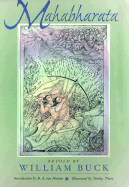
THE MAHABHARATA: My favorite work of world religion, brilliantly condensed and retold by William Buck. Human and humane without sacrificing the grand scope of its epic world view, it is as exciting as it is funny as it is comforting. It is the story of the conflict between Duryodhana and the Pandava brothers, and is filled with heart-rending human devotion and understanding as good men like Karna remain devoted to their friends even into the face of destruction, and the good weep over the destruction caused by their attempts to restore the right. If I could recommend one work to your attention and one alone, it would be this one, in this edition. 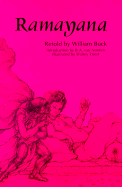
THE RAMAYANA: This is the other great pillar of the Indian epic tradition, also beautifully retold by William Buck. It is deeply humbling to consider that he produced both of these great adaptations all before his early death at the age of thirty six. This is about the exile of Rama, the abduction of his wife by the great demon king Ravana, and Rama's alliance with the monkey and bear kingdoms in his war against the demons. I love it, but not so much as the Mahabharata, mainly due to its Tanakh-like tendency to blame catastrophe on the women characters. Rama is exiled because of the gullibility of one of Dasaratha's wives, and Rama's wife Sita is abducted because of her feather-headed panic. But to balance that, you have some truly touching accounts about the valor and loyalty of the animals that choose to follow Rama, from the last stand of the Vulture King to the tireless efforts of my favorite character in world mythology, Hanuman the incredibly cocky monkey. 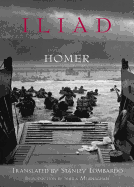
THE ILIAD: I specifically don't recommend the translation pictured above, but I couldn't find the version that I like. Call me old school, but I love Lattimore's translation. It has HEFT to it. It sounds positively strange to modern ears at times, but that's part of the experience too. I don't want my two thousand year old epic to sound like a cartoon - I want to feel a little bit out of place in these worlds and savor the very foreigness of them, and Lattimore's clasical verse helps me do that, so he's my guy. It's the Trojans versus the Greeks, and there's huge battle and the incredibly graphic deaths that go with it, but there are also gods, demigods, and normal people scattered throughout, all of them stumbling and picking themselves up and doing rash things and learning from it or not, and so there is a string of mortal understanding and acceptance throughout that the Greeks are still the western tradition masters of. 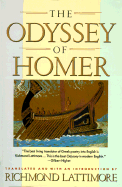
THE ODYSSEY: Like the Iliad, this is sort of a no-brainer to have on here, but if you haven't read it since high school, you should go back again some summer and relive it a while. Deeply psychological, it is troubled about the nature of the hero in a way that the Mahabharata also understands, and that won't show its face again in the literature until, basically, Spider Man. Homer (or the oral tradition gathered and represented here as Homer) is here plunging to the dark core of Greatness, and what it brings upon itself and upon those who exist around it, in ways so complex that we're still arguing about just what it all comes down to. Reading it as an adult is a central experience of existence that realigns a lot of everyday life, really. 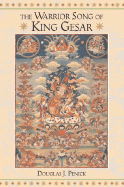
THE WARRIOR SONG OF KING GESAR: A slim volume containing the Tibetan tale of King Gesar. This is taken straight from an oral tradition that survived over thousands of years, and it feels that way. The constant present-tense narration you can either take as mind-numbing (as it tends to be in, say, modern fiction), or you can try and imagine it as being sung by a storyteller on horseback or at night, trying to make it all re-happen for you at this very moment, as his ancestors have been doing for their audiences for centuries upon centuries, and kind of get into it a little. 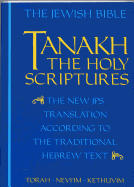
THE TANAKH: I talk a lot of shit about the Tanakh (Old Testament for the Christians in the audience, of whom I'm presuming there are none by this point). If fewer people believed in it as literally true, or morally exemplary, I'd probably really like this book as a titillating example of the barbarism of ancient belief systems and practices - a piece of escapism similar to a run through the blood-drenched, delicious amorality of World of Warcraft. The two have a fair amount in common really - in WoW one often finds one's self slaughtering an entire village on no more pretext than the promise of a really nice blue-level belt afterwards, and Yahweh's collection of homicidal, psychotic wanderers act pretty similarly throughout this book. Like I said, interesting, if you don't then make the leap that it is absolutely true or absolutely good. Then you have crossed the line into a realm of mental self-delusion and doublethink that I don't want to touch. If you are actually Christian or Jewish, READ THIS BOOK. ACTUALLY read it - not just the cherry picking of the Sunday school teachers or the priests, but the WHOLE THING. Let it trouble you, as it will, and then deal with that trouble somehow. Is this a work of God, and if so is that God worth venerating? In particular, I strongly urge you to read this translation. It is prepared by Jewish scholars, and so avoids the accidental word flops that get slipped in from time to time by Christian translators to try and make it a retroactively better fit for the New Testament than it actually is. 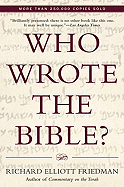
WHO WROTE THE BIBLE?: If you are a Christian or Jewish, you basically NEED to read this book to help you understand why every other paragraph in the Old Testament seems to contradict itself. If you are not a Christian or Jewish, you need to read this book to be able to speak more convincingly with those who are about why you don't believe it is all literally true. In short, if you are a human, you need to read this book. 
ATHEISM: THE CASE AGAINST GOD: Nowadays you can't raise your arm in a bookstore without hitting a book advocating atheism in one form or another, but a decade or so ago this was not the case. You had Bertrand Russell's excellent Why I Am Not a Christian, Thomas Paine's delicious Age of Reason, and a shelf of Nietzsche, and that was pretty much it. Those all do great things, defending non-belief from a psychological, textual, and anti-metaphysical point of view, respectively, but Smith's book was the one that actually went into each of the arguments for god's existence and, one by one, plucked them apart, while at the same time offering forward the definition of Atheism which I still use when defining my position to others - a statement about linguistics rather than ontology that has stood me in good stead these fifteen or so years. |